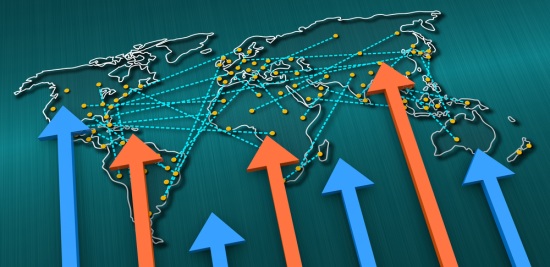5 Ways Big Data Is Changing the Travel Industry

1. More Personalization
The first way big data is affecting the travel industry is that it’s giving users more personalization. Big data helps travel businesses figure out what the trends are in online search engine keywords and what things people are asking for. There is also the possibility to analyze massive collections of hotel or resort reviews to see trends in the words that are used. Industry experts can identify specific types of features that demographic groups value, like free internet, large pools, or a pleasant view.
2. Location-Based Services
Next, big data is leading the way on location-based services for travelers. When tourists have location-based services on their mobile devices or use mapping technology, they can get even more personalized recommendations about where to go next. More businesses that appeal to travelers like restaurants, museums, hotels, and other attractions are investing in big data and technology to help track and bring in guests to their establishment. Furthermore, with airlines and private jet companies like Jettly continually pushing to further the customer experience, location-based technology is really helping to create better connectivity and enhance their experience. Travelling has never been easier.. Data can help businesses learn things about where potential customers are coming from, other sites they visit, and more.
3. Image Processing Information
Big data may also reveal information about consumer travel trends in their pictures. Many social media accounts feature vacation and travel pictures. The use of hashtags helps users share their information easily. Companies track what people are saying about their tourist destination or business as well as what is being photographed. At UAB Online, students in the MIS degree program learn the basics of this type of consumer analysis through data.
4. Different Types of Destinations
Another trend that can be predicted through big data analytics is information about destinations. While certain parts of the world are always in aspiring traveler’s top ten potential destinations, there are many new places that are popping up on the radar of new visitors. Through search engine data and website analysis, data scientists and market researchers can figure out which places are up and coming and which ones may need a promotional push to increase interest in the general public.
5. Better Pricing Strategies
Lastly, companies may start using big data to help design better pricing strategies for things like air travel, hotel room rates, attraction tickets, and restaurant menu prices. Data can tell companies when and how people search for things before they finally decide on booking. Looking at multiple visits by groups of people can reveal information about what kind of pricing ended up being booked. Data security is another issue with traveler’s credit card and account information safety being a priority. MVU Online provides expert cybersecurity graduates through their online degree program.
The travel industry may continue to transform as data analysis becomes more widespread in all aspects of the field. Expect to see more offerings based on the results of some of these studies when you start researching your next trip.

























